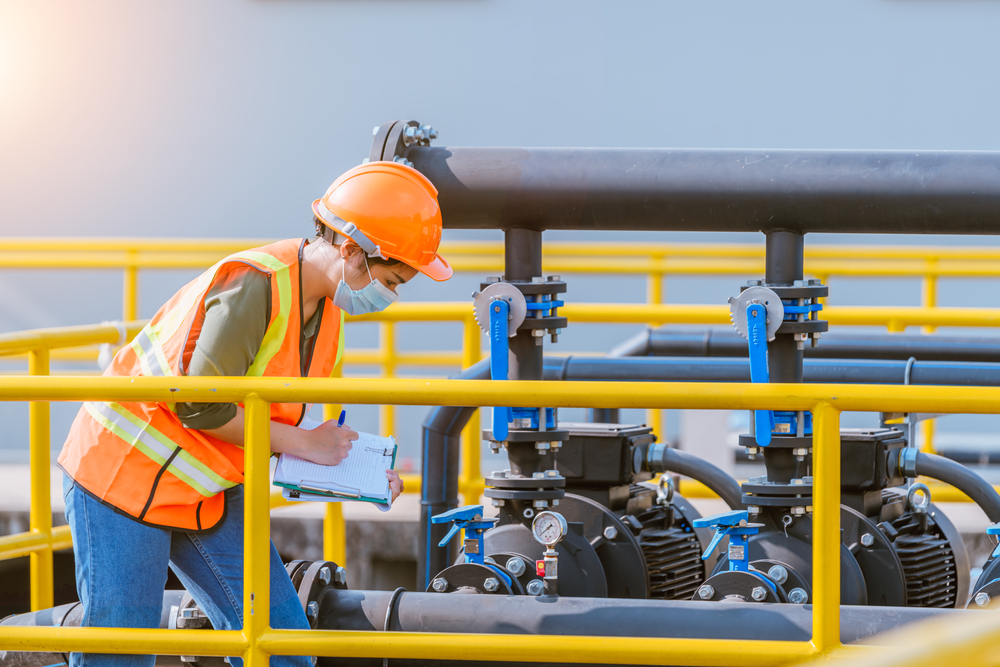
Wastewater Controls in Osawatomie, KS
Managing wastewater is crucial for maintaining environmental health and public safety in Osawatomie, KS. Effective wastewater control systems ensure that pollutants are removed, treated, and disposed of properly, safeguarding water resources and the community’s well-being. This blog delves into the importance, components, and advancements of control systems for wastewater in Osawatomie.
The Importance of Wastewater Control Systems
Wastewater control systems play a vital role in protecting water quality and public health. Without these systems, untreated wastewater can lead to severe environmental degradation, waterborne diseases, and economic loss. Here are some reasons why effective wastewater management is essential:
Environmental Protection
Untreated wastewater contains harmful chemicals, pathogens, and organic matter that can severely impact the environment. By implementing robust wastewater control systems, Osawatomie can prevent the contamination of rivers, lakes, and groundwater, thereby preserving local ecosystems and biodiversity.
Public Health
Wastewater can harbor dangerous pathogens that cause diseases such as cholera, dysentery, and hepatitis. Effective control systems for wastewater treatment eliminate these pathogens, ensuring that the water supply remains safe for drinking and recreational activities.
Economic Benefits
Proper wastewater management supports economic development by protecting industries that rely on clean water, such as agriculture, fishing, and tourism. It also reduces the cost of water treatment and health care by preventing pollution-related illnesses.
Components of Wastewater Control Systems
Modern wastewater control systems comprise several key components, each designed to handle different aspects of wastewater treatment. Understanding these components helps in appreciating the complexity and efficiency of these systems.
Collection Systems
The collection system is the first step in wastewater management. It includes a network of pipes, pumps, and manholes that transport wastewater from homes, businesses, and industries to the treatment plant. Proper design and maintenance of the collection system are crucial to prevent leaks and overflows.
Primary Treatment
Primary treatment involves the removal of large particles and debris from wastewater. This process typically includes screening to remove solids, grit chambers to settle heavy particles, and primary clarifiers to separate floating materials like oil and grease.
Secondary Treatment
Secondary treatment focuses on removing dissolved and suspended organic matter through biological processes. This stage usually involves activated sludge systems, where microorganisms break down organic pollutants, and secondary clarifiers, which separate the treated water from the biomass.
Tertiary Treatment
Tertiary treatment is an advanced process that further purifies wastewater. It includes methods like filtration, chemical coagulation, and disinfection to remove remaining impurities, nutrients, and pathogens. This stage ensures that the treated water meets stringent quality standards before being released into the environment or reused.
Sludge Management
The by-products of wastewater treatment, known as sludge, require proper management. Sludge is treated through processes like thickening, digestion, and dewatering to reduce volume and stabilize organic matter. The treated sludge can be disposed of safely or reused as fertilizer or soil conditioner.
Advancements in Wastewater Control Systems
Technological advancements and innovative approaches are continually improving wastewater control systems, making them more efficient, cost-effective, and environmentally friendly. Here are some of the latest trends and technologies in wastewater management:
Membrane Bioreactors (MBRs)
MBRs combine biological treatment and membrane filtration to achieve high levels of purification. These systems are compact, energy-efficient, and capable of producing high-quality effluent suitable for reuse in various applications, including irrigation and industrial processes.
Advanced Oxidation Processes (AOPs)
AOPs use powerful oxidants like ozone, hydrogen peroxide, and UV light to break down organic pollutants and disinfect wastewater. These processes are effective in removing recalcitrant compounds that are resistant to conventional treatment methods.
Nutrient Removal Technologies
Excessive nutrients like nitrogen and phosphorus in wastewater can lead to eutrophication, causing algal blooms and aquatic ecosystem degradation. Advanced nutrient removal technologies, such as biological nutrient removal (BNR) and chemical precipitation, help reduce nutrient levels and protect water bodies.
Smart Control Systems
The integration of smart technologies, such as sensors, automation, and data analytics, enhances the efficiency and reliability of wastewater control systems. Smart control systems enable real-time monitoring and optimization of treatment processes, reducing operational costs and improving compliance with regulatory standards.
Decentralized Wastewater Treatment
Decentralized wastewater treatment systems treat wastewater at or near the source of generation, reducing the burden on central treatment facilities. These systems are particularly beneficial for rural and remote areas in Osawatomie, providing a sustainable and cost-effective solution for wastewater management.
Challenges and Solutions in Wastewater Management
Despite the advancements, wastewater management faces several challenges, including aging infrastructure, climate change, and population growth. Addressing these challenges requires a combination of innovative solutions, community engagement, and effective policy frameworks.
Aging Infrastructure
Many wastewater systems in Osawatomie are aging and require significant upgrades to maintain functionality and compliance with regulatory standards. Investing in infrastructure renewal and adopting asset management practices can extend the lifespan of existing systems and ensure reliable performance.
Climate Change
Climate change impacts, such as increased rainfall and extreme weather events, can overwhelm wastewater systems, leading to overflows and pollution. Incorporating climate resilience into wastewater planning and design, such as green infrastructure and flood management, can mitigate these risks.
Population Growth
Population growth increases the volume of wastewater generated, putting additional pressure on treatment facilities. Expanding and upgrading treatment capacity, along with promoting water conservation and reuse, can help manage the growing demand.
Community Engagement
Effective wastewater management requires active participation from the community. Raising awareness about the importance of proper wastewater disposal, encouraging responsible behavior, and involving stakeholders in decision-making processes can enhance the success of wastewater control initiatives.
Conclusion
Wastewater control systems are essential for maintaining environmental health, public safety, and economic stability in Osawatomie, KS. By understanding the importance, components, and advancements of these systems, the community can appreciate the value of effective wastewater management. Continuous investment in technology, infrastructure, and community engagement will ensure that Osawatomie remains a model of sustainable and efficient wastewater control.
Need Pumping Equipment in Osawatomie, KS?
Categorised in: Wastewater Control Systems
